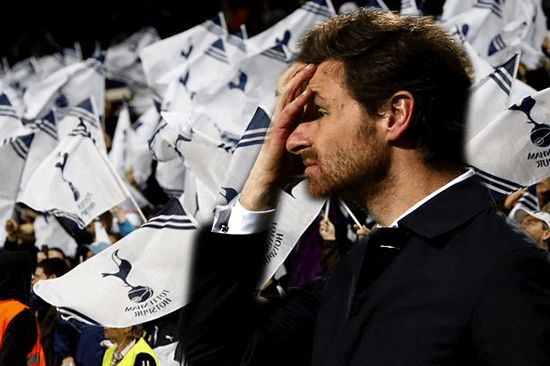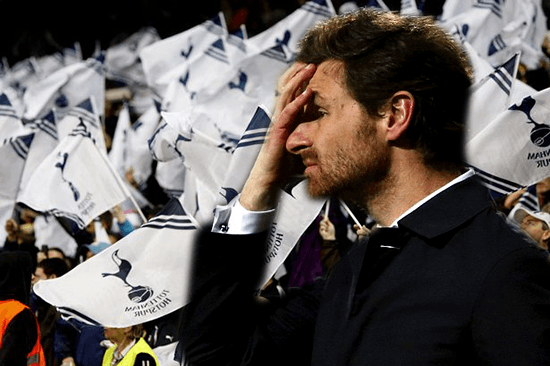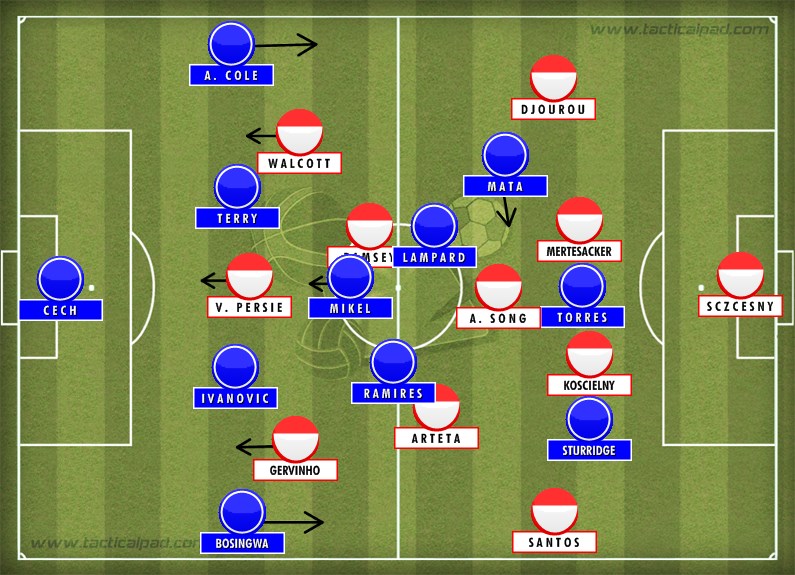
The Ballad of Andre Villas-Boas

He was to be a prominent leader who would usher in a new generation of football coaches; a generation which was to embrace technology and objectify football like a fast paced chess game, one which would further inspire the average ‘geeky’ Football Manager player, and perhaps most importantly redefine football management and help move away from “the old ex-pros who couldn’t quite let go of the game they loved”, and towards a profession which required dynamic, youthful and forward thinking coaches. But instead, Andre Villas- Boas has set this generation back a few years.
Last week he was relieved of his duties at Tottenham Hotspurs, leaving from his second English club in two years. One must wonder where it all went wrong for football’s “wonderkid” manager who was the man who won the treble with Porto in 2011 and was excitedly talked about as being “Special too”(pun intended), with clubs all over Europe in relentless pursuit of his signature.
Andre Villas-Boas’s journey into Football Management is truly remarkable. Having never played football professionally at any level, it is now a fabled tale of how he as a 16-year-old questioned the great Sir Bobby Robson’s player selection at FC Porto during a chance encounter with him at the twos common apartment complex.
Sir Bobby who was so impressed with the teenager’s reasoning and questioning, decided to send him to Scotland to complete his coaching badges, and later appointed him on Porto’s observation team. It was there he met the then “not so special” Jose Mourinho, another of Sir Bobby’s protégés.
Together, the two grew under Sir Bobby winning back to back league titles and perhaps even more importantly were passed down invaluable knowledge from one of football’s finest gentleman. When Mourinho decided to venture into management, Villas-Boas followed him as his chief opposition scout.
Together the pair met success after success at Porto, Chelsea and Internazionale. AVB was one of the most trusted members of Mourinho’s staff, which he manifested by calling Villas-Boas his “eyes and ears”. A splendid example of one of his comprehensive opposition scouting dossiers is this one, found by the Daily Telegraph on Newcastle United.
It was all merry for any man willing to settle in the shadows of success, but Villas Boas was not that man. As his experience grew, Villas-Boas was beginning to have his own management ambitions and after a year at the San Siro, much to the annoyance of Mourinho, he left to return to Portugal and take control of Academica, a team struggling against relegation and having not won a match, until Villas-Boas arrived and hauled them back to safety.
In 2010, he got his big break and was appointed manager of Porto. Andre Villas-Boas’s return to the club where it all started for him was a hugely successful one. He presented a dynamic and versatile team, with the high pressure and attacking fluency leaving the rest of Europe in awe.
Falcao, Hulk and Joao Moutinho all became stars in a season where they clinched the treble of the Europa League, Portuguese league and Cup. All this at the age of 34, as a manager. His management netted him the plaudits praise with teams vying for his signature, amongst which was another one of his former employers, Chelsea FC.
Chelsea
Andre Villas-Boas’s time at Chelsea was at the least, a huge disappointment. He was sacked after just nine months of coming to the English shore. Much was expected of him on his arrival to England, perhaps too much with the pressure of being a José Mourinho clone too high.
An interesting point to be noted was despite his time with Mourinho, AVB was philosophically different. The system came first, not the players. He has even shown open admiration to Pep Guardiola, Mourinho’s arch-rival tactician. The change in philosophy proved to be too hard to implement in a club like Chelsea which was steeped in Mourinho’s pragmatic DNA.
It involved heavy pressing which expectedly led to playing a high defensive line, which would suit younger more dynamic players. Naturally, the key senior players like John Terry and Frank Lampard were not too pleased to find themselves frequently warming the bench.
AVB was only a couple of years elder to them and found it an uphill task to win their respect. Given below is a display of his highly obdurate tactics, against Arsenal in October 2011. Historically, in this fixture Chelsea were the ones who sat back, often reaping benefits off the counter.

However AVB preferred an attacking set up. Take note of the high defensive line. The match ended 5-3 in favour of Arsenal with Chelsea’s high line ripped apart by Van Persie and co. Both the centre backs were very uncomfortable with the high line, especially John Terry whose pace hadn’t kept up along the years.
AVB was sacked in March 2011 after a poor string of results and dressing room unrest. His assistant Roberto Di Matteo took over as interim manager and of course as we all now know, went ahead and won the Champions League. It surely must have been agonizing for AVB watching as “his team” (in his words) achieved crowning glory, when only months before under him they were a foot outside the Champions League.